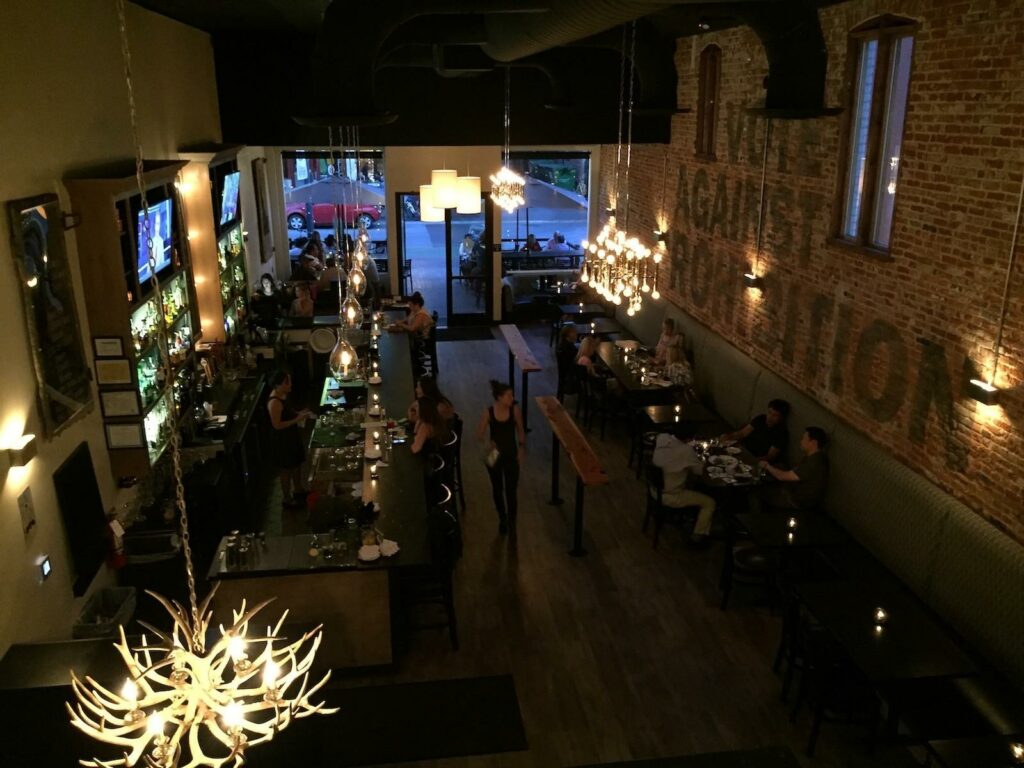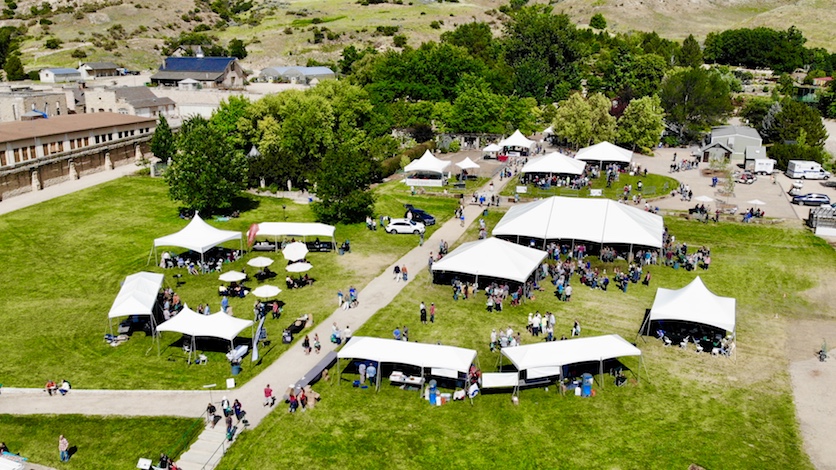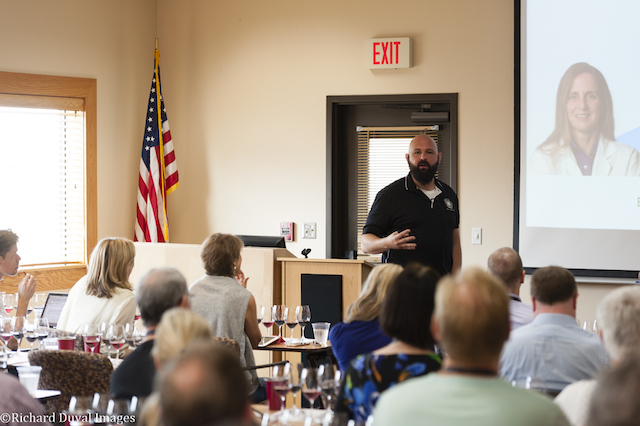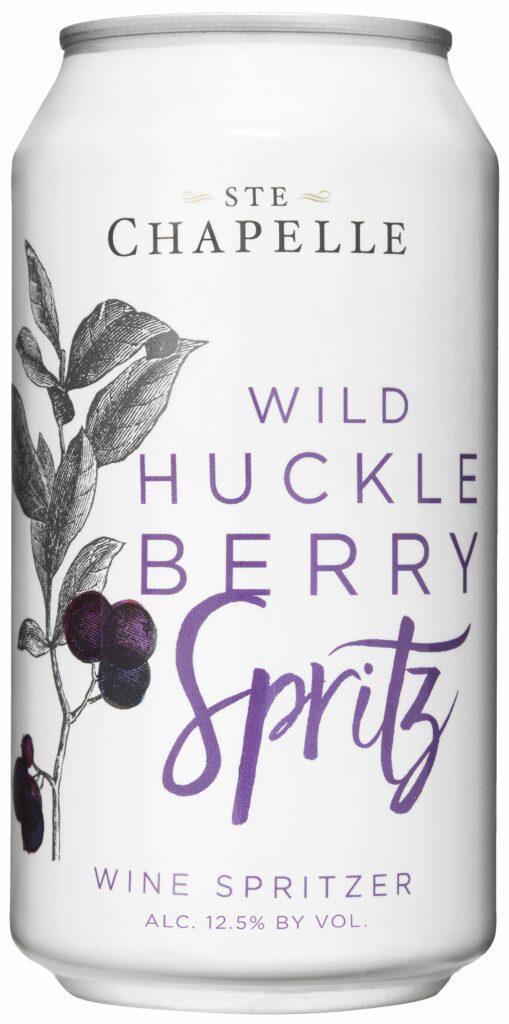
BOISE, Idaho — Lawmakers in Idaho, the fastest-growing state in the country for the past five years, are reviewing legislation that would make theirs only the second state to permit a 17-year-old to serve alcohol.
The Idaho Retailers Association is behind Senate Bill 1308, which reflects the labor shortage found throughout the Gem State. The bill refers to it as “an emergency” and factors include the pandemic and skyrocketing costs of housing.
Despite Idaho’s historical conservative stance on many issues — the state went “dry” four years prior to Prohibition — and the makeup of its Legislature at 86 Republicans and 19 Democrats, there’s support for this bill from the party in power. It emerged from the Senate State Affairs Committee with a recommendation and was filed Friday for a third reading.
“I’m totally good with allowing a 17-year-old to serve an alcoholic beverage to me,” said Ilene Dudunake, owner of A New Vintage Wine Shop in the Boise suburb of Meridian. “I feel it would help younger adults get more jobs in our industry.”
The bill was introduced by Representative John Vander Woude (R-Nampa), Sen. Jim Guthrie (R-McCammon) and Sen. Peter Riggs (R-Post Falls).
“The current age is 19,” the bill’s Statement of Purpose reads. “This change would help businesses by expanding the labor pool, would help teenagers by creating additional and higher paying jobs, and help customers by cutting down the current wait times when ordering or purchasing these products in restaurants or grocery stores.”
The bill would amend Section 23-949 of Idaho Code to permit any person who is 17 years of age to sell, serve, possess, or dispense beer, wine or other alcoholic liquor in the course of their employment.
Roger Batt, longtime legislative educator for the Idaho Grape Growers and Wine Producers and member of Association Management Group in Meridian, touched on the bill Monday during the first day of the Idaho Wine Commission’s annual meeting.
“I haven’t heard from anybody in the wine industry on this,” Batt said. “I don’t know if a lot of folks even know it’s out there, but this is a push by the restaurants. I think they are just trying to improve their work force with this.”
Most states have established 18 as the minimum age to serve alcohol. In seven states, it is 19. In Kentucky, the age is 20. Only in Alaska, Nevada and Utah is it the same as the federal drinking age — 21. There are 26 states that allow bartending at age 18. In Maine, the minimum age to tend bar is the same to serve alcohol — 17.
“I’m not sure why (Idaho’s bill) settled on 17, but I do know the original draft said ’16 years of age,’ ” Batt said.
Senate Bill 1308 states, “An emergency existing therefore, which emergency is hereby declared to exist, this act shall be in full force and effect on and after July 1, 2022.”
However, there is no sunset clause in the bill. The state Legislature is busy debating what to do with its $1.9 billion budget surplus, and March 25 is the deadline for this session.
Savor Idaho returns June 12 to botanical gardens

Tickets go on sale March 1 for Savor Idaho, the Gem State’s signature consumer event of the year and the spotlight of Idaho Wine & Cider Month. The walk-around tasting returns to the Idaho Botanical Gardens on June 12 in Boise.
Moya Dolsby, executive director for the Idaho Wine Commission, said it will be operated in “two waves” — from 11:30 a.m. to 2 p.m. and then 3-5:30 p.m. That’s a new twist on the event Dolsby created for the industry in 2009 during her second year in the job. The inspiration was Taste Washington, which she oversaw for more than four years during her time as event manager for the Washington State Wine Commission.
“We will be more spread out throughout the garden, and each winery will have their own tent this year,” Dolsby said. “And it will be more of a farmers market style with food trucks because food samples are not really happening anymore.”
Based on the growth of the industry, there should be a record number of producers pouring at Savor Idaho this spring. When Dolsby arrived during the Great Recession, Idaho had 32 wineries. Now, despite the pandemic, there are more than 70 wineries throughout the state.
Batt, whose relationship with the wine industry as their lobbyist goes back 15 years, is working with lawmakers to help the commission receive $200,000 in pandemic-related funding stemming from the cancellations of the 2020 and 2021 Savor Idaho festivals. If the legislature approves, the Idaho Wine Commission has earmarked that money for marketing.
Batt said some have predicted that perhaps a third of the state Legislature will be replaced through the 2022 elections as a result of retirements, redistricting and some running for a higher office.
“We as a grateful wine industry are losing some members with the institutional knowledge that we’ve worked with for a long time, Senator Patti Anne Lodge, for instance, who has helped us out,” Batt said of the lawmaker from Huston who is leaving after 11 terms. “So it’s going to be my job and others to help educate the new people who come in so they understand our industry and understand how important it is to our state’s economics — and what it generates.”
A 2017 research project funded by the commission showed that the Idaho wine industry’s impact on the state’s economy was $209.6 million. Records indicate that in 2020 Idaho wine earned a 13.8% market share of all wine sales in the state.
Wine Economist: ‘Spirits are kicking wine’s butt’
Mike Veseth, the globetrotting lecturer, author and editor of TheWineEconomist.com, closed out Monday’s virtual gathering for the Idaho wine industry by providing a global look at the past 20 years and sharing his insight on some trends.
Earlier this month, he gave his The Big Squeeze presentation virtually to Wine Industry Network’s Leadership Conference. Last month, he led a state of the industry roundtable at the Unified Symposium, the behemoth event that returned to Sacramento, Calif., after going virtual in 2021. Monday, Veseth pointed out that global wine consumption peaked at 250 million hectoliters in 2007-08, just ahead of the Great Recession. It stands around 235 mhl, according to the International Organization of Vine and Wine, which Veseth likens to “the United Nations of Wine.” He blamed some — but not all — of the tumble on the pandemic.
“Part of it was China,” Veseth said. “I know that some of your Idaho producers have had pretty good luck in getting some of your wines into China, but it seems now that whatever growth there will be (in China) is with Chinese wines.
“And probably, in part, for political reasons,” Veseth added, pointing to China’s geopolitical dispute with Australia and a 218% tariff on Aussie wines.
Veseth highlighted the American consumer’s fascination with wine-based cocktails, which can be produced using wines made from fruit other than grapes. Along the way, he applauded the efforts of Precept Wine. The conglomerate with headquarters in Seattle owns Idaho’s largest winery, Ste. Chapelle, and sister project Sawtooth.
“Single-serve cocktails with fruits and flavors are something to pay attention to because spirits are kicking wine’s butt in the post-pandemic era,” Veseth warned. “I’ve noticed that Precept, which is an important producer in Idaho, has figured out this is a growth part of the market, and they’ve done a good job of introducing grape wine-based single-serving cocktails.”
Ste. Chapelle now offers a handful of canned wine spritzers, two of those are low-alcohol products at 6% ABV.
Idaho winemakers gather in-person Tuesday

Tuesday marks the first in-person gathering of the industry since the pandemic began as winemakers and vineyard owners meet at the Riverside Hotel in the Boise bedroom community of Garden City.
The lineup of presenters includes Trent Ball, who directs the viticulture and enology program at Washington’s Yakima Valley College; Tim Donahue of Horse Thief Wine Consulting and past director of winemaking at Walla Walla Community College; Erin Hogarty, an investigator for the U.S. Department of the Treasury’s Tax and Trade Bureau (TTB); Joel Perez, director of viticulture and vineyard manager for WWCC; and Christopher Puppione, regional key account manager for the Coravin Wine Saver System.
NOTES: Crystal Potter, board chair of the Idaho Wine Commission and co-owner of Potter Wines, kicked off Monday’s virtual meeting and mentioned, “Two words send me over the edge – Dry January.” She followed that up with “Thank you, Super Bowl” for the tailgate-type parties that surround the NFL’s title game. … The Idaho Wine Commission has arranged for $124,000 to help with Boise State geoscientist David Wilkins’s network of vineyard weather stations. “You guys know I geek out on weather station data,” Dolsby said. .. The commission will be continuing its winery passport program during the month of June. “We had one consumer who went to 24 wineries,” Dolsby said. “We’ve had people come in to tell us they went to Lewiston because they wanted to get their passport checked off. Stories like that amaze me.”


Leave a Reply